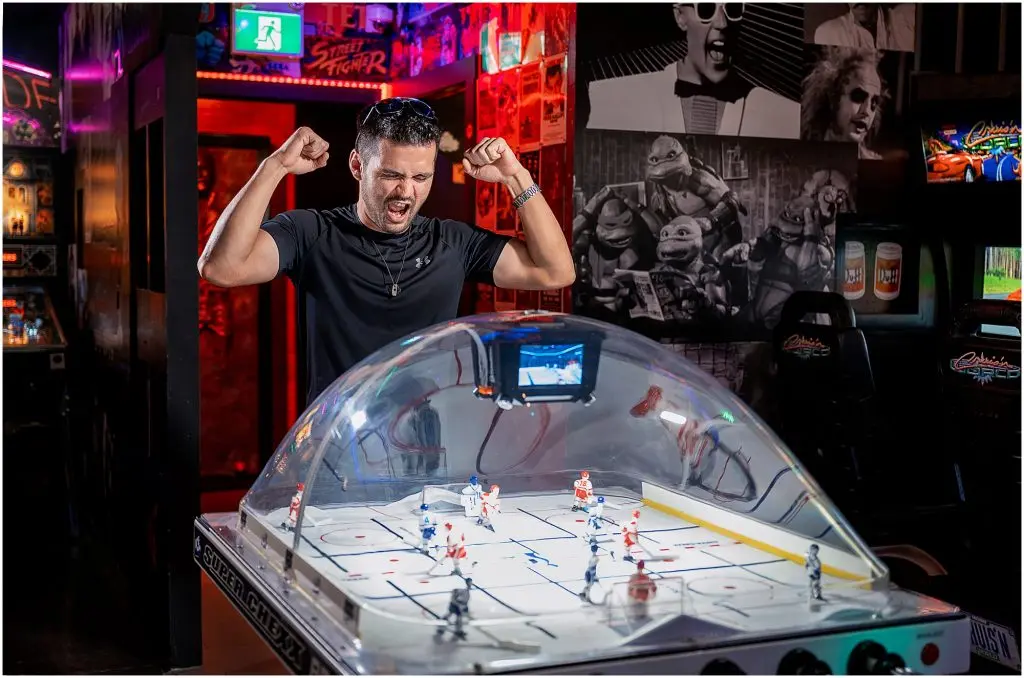Transportation planning can be a complex and challenging field that requires a deep understanding of various modes of transportation, as well as the ability to analyze data and make informed decisions. However, traditional methods of teaching transportation planning may not always engage students or prepare them for real-world challenges.
This is where arcade games come in, offering a new and innovative way to teach transportation planning while enhancing critical thinking and problem-solving skills. Using arcade games as a teaching tool can be likened to navigating the complex world of transportation planning.
Just as a successful transportation plan requires careful consideration of various factors and modes of transportation, arcade games require strategic thinking and quick decision-making to progress through different levels. By combining the two, students can learn about transportation planning in a fun and engaging way, while also gaining valuable skills that will serve them well in their future careers.
Key Takeaways
- Traditional teaching methods may not effectively engage students in transportation planning concepts.
- Gamification in transportation planning education can enhance critical thinking and problem-solving skills, improve student engagement, and provide an interactive and enjoyable learning experience.
- Interactive teaching methods, including simulating real-world transportation challenges, can help students develop practical skills and foster collaboration.
- Industry partnerships are crucial in providing opportunities for students to engage in real-world transportation projects and gain practical experience.

Engaging Students with Interactive Learning
To enhance student engagement with transportation planning, an effective strategy entails the utilization of interactive learning methods that are impartial, informative, and devoid of personal pronouns.
The Benefits of Arcade Games for Mental Health can provide an engaging and interactive way to teach transportation planning concepts.
Interactive teaching methods can help students to develop a deeper understanding of the subject matter, as they actively participate in the learning process.
This approach can also help to foster a sense of collaboration and problem-solving skills, as students work together to solve challenges and achieve goals.
Additionally, by eliminating personal pronouns from the teaching materials, the focus can be shifted onto the subject matter, rather than the teacher or students themselves.
This can help to create a more objective and analytical learning environment, allowing students to fully immerse themselves in the material and develop a subconscious desire for mastery.
Overall, utilizing gamification benefits and interactive teaching methods can be an effective way to engage students and enhance their learning experience in transportation planning.
Developing Critical Thinking and Problem-Solving Skills
Enhancing critical thinking and problem-solving abilities is crucial for students to become effective decision-makers in today’s complex world.
Studies have shown that individuals who possess these skills are more likely to succeed in their careers, with 90% of employers stating that they prefer to hire individuals with strong critical thinking abilities.
Teaching transportation planning with arcade games provides an innovative approach to developing these skills, as it involves analyzing scenarios and evaluating solutions in a fun and interactive way.
By engaging with the game’s challenges, students are encouraged to think creatively and make decisions based on the information presented.
They are also given the opportunity to learn from their mistakes and improve their decision-making abilities over time.
Ultimately, this approach helps students to better understand and appreciate the complexities of transportation planning, while also cultivating critical thinking and problem-solving skills that are valuable in a wide range of contexts.
Simulating Real-World Transportation Challenges
Simulating real-world transportation challenges provides students with a practical and immersive learning experience that allows them to gain a deeper understanding of the complexities of transportation systems.
By creating realistic scenarios within arcade games, students are able to analyze and interpret data to make informed decisions regarding transportation planning. This type of experiential learning helps to develop critical thinking and problem-solving skills while also providing a fun and engaging way to learn about transportation planning.
Students can experiment with different strategies and observe the outcomes, gaining a better understanding of the cause-and-effect relationships within transportation systems. Through these simulations, students can learn about the impact of transportation on the environment and society, as well as the economic considerations involved.
Overall, simulating real-world transportation challenges through arcade games is an effective way to teach transportation planning, allowing students to apply theoretical concepts to practical situations.
Preparing Students for Future Careers in Transportation
Preparing students for careers in transportation requires an interdisciplinary approach that incorporates technical skills, critical thinking, and an understanding of the social and environmental impacts of transportation systems.
To achieve career readiness, students need to be equipped with the necessary skills and knowledge that match the demands of the industry. This involves not only technical skills such as data analysis and modeling but also soft skills such as team collaboration and effective communication.
Moreover, industry partnerships are crucial in providing opportunities for students to engage in real-world transportation projects, gain practical experience, and network with professionals in the field.
By integrating arcade games as a teaching tool, students can learn these skills in a fun and interactive way while also gaining an understanding of the complexities of transportation planning.
With the right education and exposure, students can become the next generation of transportation professionals who can address the challenges of sustainable and equitable mobility.
Enhancing Learning through Gamification Techniques
Gamification techniques offer an innovative approach to education that can improve student engagement and learning outcomes. Implementing gamification in transportation planning education can create a more interactive and enjoyable learning experience for students.
Through the use of arcade games, students can develop practical skills such as problem-solving, critical thinking, and decision-making. Furthermore, gamification allows for immediate feedback, which can aid in retaining knowledge and building upon it.
The benefits of interactive learning include increased motivation, higher retention rates, and improved performance. By incorporating gamification techniques into transportation planning education, students can develop a deeper understanding of the material and be better equipped for future careers in the field.
Conclusion
In conclusion, the integration of arcade games in transportation planning education is a highly effective approach to engage students and enhance their learning experience. By utilizing gamification techniques, it enables students to develop critical thinking and problem-solving skills, simulating real-world transportation challenges they may encounter in their future careers.
Furthermore, the use of interactive learning in transportation planning education not only provides students with practical knowledge but also prepares them for the dynamic and constantly evolving transportation industry. The application of gamification techniques in transportation planning education fosters a fun and engaging learning environment that motivates students to learn and achieve their full potential.
As such, the utilization of arcade games in transportation planning education serves as a testament to the power of innovative teaching techniques that can transform the way we educate and prepare students for their future careers.
Moving forward, educators should continue to explore and incorporate new and exciting technologies in the classroom to ensure that students receive the best possible education experience.
You may also like to read:
The Importance of Transportation in Custom Home Building




